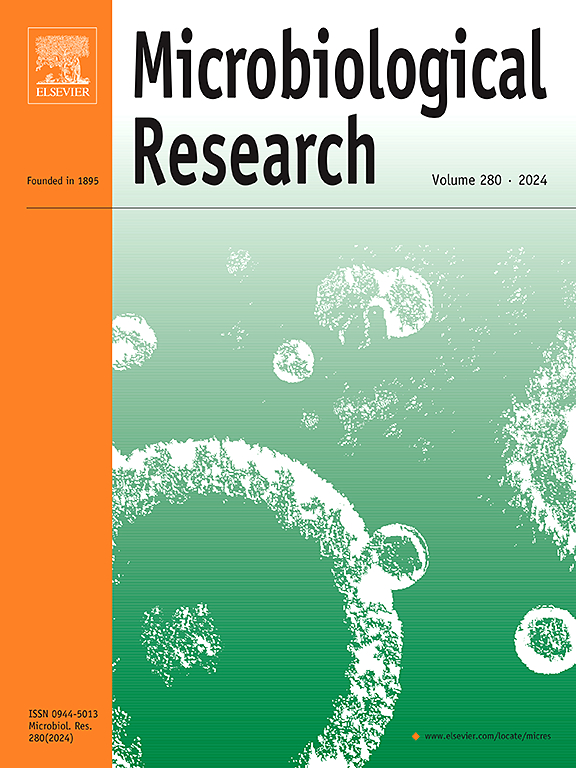肠道微生物群-吲哚-3-乙酸轴在癌症中的双重功能,机制见解和治疗潜力。
IF 6.9
1区 生物学
Q1 MICROBIOLOGY
引用次数: 0
摘要
吲哚-3-乙酸(IAA)是一种由膳食色氨酸产生的肠道微生物代谢物,在癌症中具有双重作用,根据其浓度和癌症环境促进或抑制肿瘤生长。IAA可以通过增加活性氧(ROS)、破坏自噬和破坏癌细胞来提高化疗效果。它还激活芳烃受体(AhR),促进免疫抑制肿瘤相关巨噬细胞(TAM)表型,降低t细胞活性,帮助肿瘤生长。此外,IAA参与toll样受体4 (TLR4),激活c-Jun n -末端激酶(JNK)信号通路,以调节细胞生长和限制肿瘤增殖。另一方面,IAA通过加强肠道屏障、减少炎症和促进Treg细胞活性来提供保护作用。IAA被认为是一种尿毒症毒素,当清除受损时可以积累,导致氧化应激和炎症增加,从而可能进一步加重肾脏疾病并促进癌症的发展。这篇综述强调了肠道微生物如何影响癌症患者体内的IAA水平,这在个体之间差异很大。与其他色氨酸代谢物不同,IAA在癌症中具有独特的双重作用,根据不同的环境,既可以促进肿瘤,也可以抑制肿瘤。了解微生物和宿主环境如何影响IAA可能为靶向癌症治疗开辟新的途径。本文章由计算机程序翻译,如有差异,请以英文原文为准。
Gut microbiota – indole-3-acetic acid axis in cancer: dual functions, mechanistic insights, and therapeutic potential
Indole-3-acetic acid (IAA), a gut microbial metabolite produced from dietary tryptophan, has a dual role in cancer, either promoting or suppressing tumor growth depending on its concentration and the cancer context. IAA can boost chemotherapy effectiveness by increasing reactive oxygen species (ROS), disrupting autophagy, and damaging cancer cells. It also activates the aryl hydrocarbon receptor (AhR), which promotes an immunosuppressive tumor-associated macrophage (TAM) phenotype and reduces T-cell activity, aiding in tumor growth. Additionally, IAA engages the Toll-like receptor 4 (TLR4), activating the c-Jun N-terminal kinase (JNK) signaling pathway to regulate cell growth and limit tumor proliferation. On the other hand, IAA offers protective effects by strengthening the intestinal barrier, reducing inflammation, and promoting Treg cell activity. IAA, recognized as a uremic toxin, can accumulate when clearance is impaired, leading to increased oxidative stress and inflammation that may further aggravate kidney disease and promote cancer development. This review highlights how gut microbes shape IAA levels in cancer patients, which vary widely between individuals. Unlike other tryptophan metabolites, IAA has a unique dual role in cancer, both promoting and suppressing tumors depending on the context. Understanding how microbes and the host environment influence IAA may open new paths for targeted cancer therapies.
求助全文
通过发布文献求助,成功后即可免费获取论文全文。
去求助
来源期刊

Microbiological research
生物-微生物学
CiteScore
10.90
自引率
6.00%
发文量
249
审稿时长
29 days
期刊介绍:
Microbiological Research is devoted to publishing reports on prokaryotic and eukaryotic microorganisms such as yeasts, fungi, bacteria, archaea, and protozoa. Research on interactions between pathogenic microorganisms and their environment or hosts are also covered.
 求助内容:
求助内容: 应助结果提醒方式:
应助结果提醒方式:


